A system administrator certification demonstrates expertise in managing IT systems and infrastructures. Find out all you need to know about this highly sought-after accreditation, especially in the age of cloud computing!
In every company and organization, effective management of IT systems has become crucial to the smooth running of operations. IT has become the cornerstone of every industry.
To carry out this management mission, one professional plays a central role in ensuring that infrastructures are secure, reliable and efficient: the system administrator.
To prove that you have the skills required to perform this vital function, and that companies can really count on you, you can acquire certification. Here’s everything you need to know…
What is a system administrator?
Often referred to as sysadmin, the system administrator occupies a central position in the operation of an organization’s IT infrastructure. They are responsible for managing, maintaining and optimizing computer systems and servers.
This specialist installs and configures servers, operating systems, software and all applications required for operations. They also ensure that systems are secure against threats and vulnerabilities, by implementing policies, firewalls and patches.
In addition, he ensures that the company complies with data security regulations. His role is also to constantly monitor system performance to identify potential problems.
He or she carries out both proactive and reactive maintenance to ensure the continued availability of services. To ensure optimum performance, he monitors and adjusts resources.
This can include adding hardware, managing virtualization and optimizing configurations. In the age of cloud computing, mastery of platforms such as AWS, Azure or GPC is essential.
He or she also manages user accounts, access rights and authorizations to ensure data confidentiality and efficient collaboration within the organization!
He also plans and implements backup strategies to prevent data loss. In the event of a breakdown, it’s up to the sysadmin to ensure fast, efficient recovery.
If a sysadmin is indispensable in a modern company, it’s because he or she ensures both service availability and data security, while optimizing costs and reducing the complexity of IT infrastructures as much as possible!

What is system administrator certification?
Let’s move on to the subject of sysadmin certification. This is a professional accreditation issued by reputable bodies, attesting that the holder has all the skills and knowledge required to effectively manage and maintain an organization’s IT systems.
It is a formal validation of a professional’s skills in areas such as server management, systems security, virtualization, network management and much more.
For a professional, it boosts credibility and career opportunities by opening the door to more specialized and better-paid positions.
What’s more, it gives you access to a vast network of peers and industry experts. It’s also a chance to keep up with the latest technologies and best practices in the industry, even if you’re already a long-standing sysadmin.
As an employer, this certification guarantees that you’ll be hiring qualified and skilled professionals, and benefiting from better management of cybersecurity-related risks.
It’s also the assurance of improved productivity through enhanced systems management, and the ability to meet security standards such as the GDPR in the EU.
The best system administrator certifications
There are several highly recognized system administrator certifications. They are issued by different organizations or companies in the IT industry. Here’s a roundup of the best.
CompTIA Server+
This intermediate-level certification covers a wide range of server management skills. It is designed to validate the essential skills of system administrators in maintaining, troubleshooting and managing physical and virtual servers.
The exam covers server hardware management, server installation and configuration, server maintenance and troubleshooting, storage management, virtualization and the cloud.
It is a validation of high-level server management skills, relevant to a wide range of system administration roles. Highly prestigious, it is recognized by many industry employers.
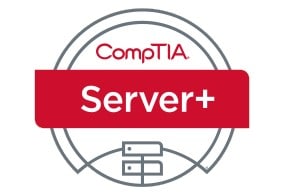
Red Hat Certified System Administrator (RHCSA)
This certification, issued by Red Hat, attests to the skills required to administer and manage Linux enterprise systems. It is highly recognized in its field, and is a real asset for positions in companies using this OS.
To pass the exam, you need to be able to install and configure Red Hat Enterprise Linux, manage users and groups, administer systems and services, and ensure system security. You’ll also be able to automate tasks using scripts.
Linux professionals are considered experts and are in great demand. In addition, many companies use Red Enterprise Linux.
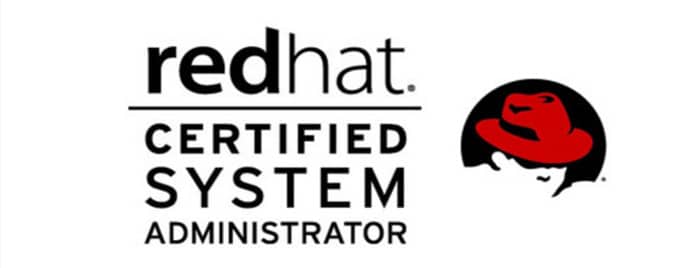
Cisco Certified Network Associate (CCNA)
Although primarily focused on networks, Cisco Certified Network Associate (CCNA) certification is also relevant to system administrators. It covers many aspects of network management, security and connectivity.
Networking skills are essential for any sysadmin. And to pass the CCNA exam successfully, you’ll need to master basic networking concepts and the configuration of Cisco routers and switches.
You’ll also need to know how to secure and manage the network, and how to troubleshoot any problems. This is a very good certification for any IT professional working in complex network environments, recognized by many companies worldwide.
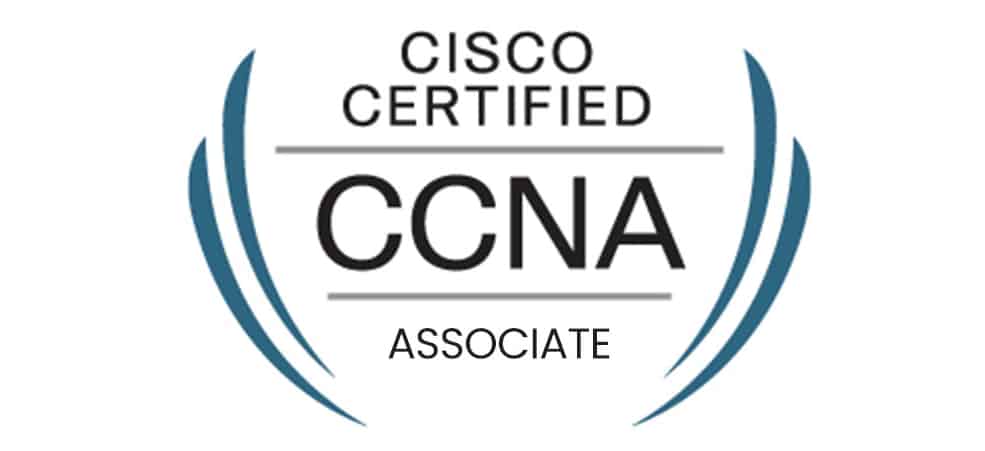
Microsoft Azure Administrator
Designed by Microsoft, the Azure Administrator certification is intended for professionals wishing to specialize in the management of infrastructures based on Azure: the American firm’s cloud computing platform.
It certifies the skills required to deploy, manage and monitor Azure resources, and to resolve common problems.
The exam covers the management of Azure virtual machines, storage, Azure Active Directory identities, security and compliance, and the monitoring and optimization of Azure resources.
With the growing adoption of the Azure cloud, skilled professionals are in high demand. It’s the most widely used cloud platform after Amazon Web Services! As well as enabling you to work as a sysadmin, this certification opens the door to numerous career opportunities in the cloud.
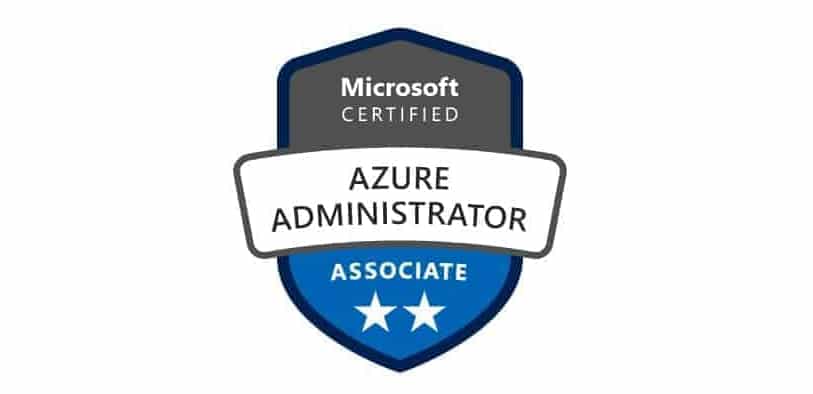
How to choose and obtain your sysadmin certification?
Before choosing a certification, the most important thing is to clearly define your objectives. You need to specialize in a particular area, such as security or server management.
At present, cloud-oriented certifications are the most relevant.
If you want to work for a specific company, find out what specific certifications they require. In addition to your aspirations, consider your current skills.
It’s best to start with an accessible certification if you’re just starting out, and on the contrary aim for a more advanced level if you already have experience. Research the job market in your region or sector of interest.
Once you’ve selected the certification that suits your goals, exam preparation is crucial to success.
Make sure you schedule your preparation around the exam date, and devote time to study and practice.
Concentrate on the areas you find hardest to master. You can consult books, videos and other online resources to develop your expertise.
However, the best way to prepare yourself effectively is to choose quality training from experienced instructors. That’s what DataScientest offers for Microsoft Azure Administrator certification.
And don’t hesitate to familiarize yourself with the exam through simulators, and put what you learn into practice in a virtual lab environment.
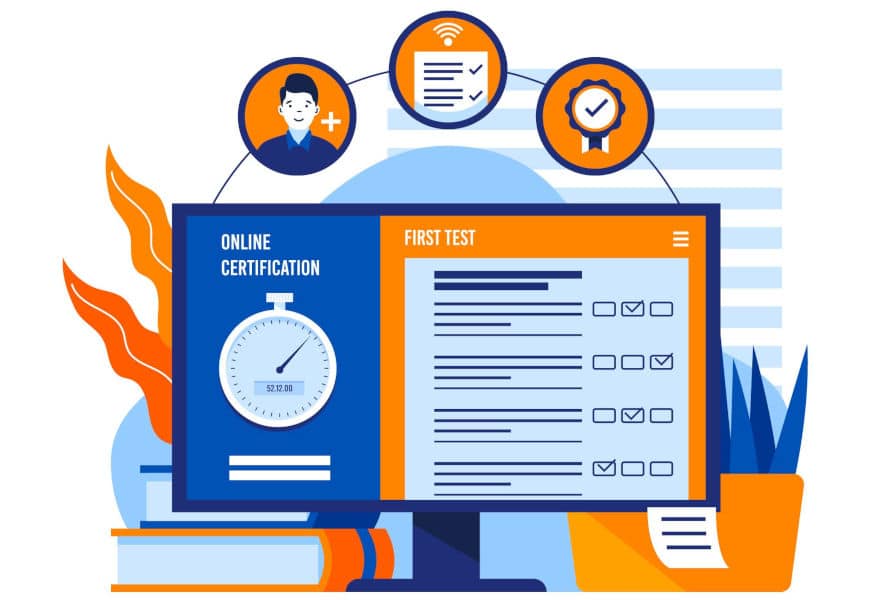
Conclusion: system administrator certification is the ideal way to demonstrate your expertise
By guaranteeing your system administration skills, certification can set you apart from other candidates for the same position within a company.
It’s the best way to advance your career and demonstrate your expertise. It not only attests to your technical skills, but also to your commitment to excellence in the sysadmin field.
To give yourself the best chance of obtaining it, choose DataScientest. Our dedicated Microsoft Azure training course prepares you for and includes the AZ-104 certification exam for Microsoft Azure Administrator certification.
At a time when many companies are abandoning their on-premises infrastructures for the cloud, this is an excellent choice for a career as a system administrator!
In just five intensive days, this online training course will introduce you to the basic principles of the cloud and the various Microsoft Azure services. You’ll also be introduced to best practices for creating and managing Azure resources.
Later, you’ll acquire more specific skills in storage, backup and virtual machine management. At the end of the course, you’ll be ready to take the AZ-104 exam and become a certified Azure Administrator!
This training course is eligible for funding options, and our organization has the exclusive title of Microsoft Learning Partner, guaranteeing our expertise. All our teachers have Microsoft Certified Trainer status. Discover DataScientest now!










